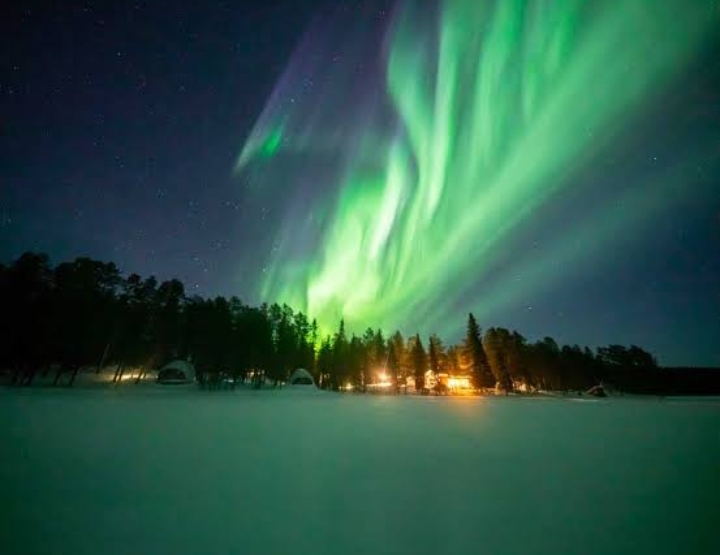Ladakh, known for its breathtaking landscapes and cultural richness, is gaining attention for its unique position in studying the aurora borealis, or northern lights. This phenomenon, typically associated with polar regions, has begun to reveal its beauty in the high-altitude desert of Ladakh, thanks to enhanced space tracking and weather observation initiatives.
The Science Behind the Aurora
The aurora borealis occurs when charged particles from the sun collide with gases in Earth’s atmosphere, producing stunning light displays. While traditionally viewed in areas like Norway or Canada, the increasing frequency of sightings in Ladakh highlights the region’s potential for auroral research.
Strategic Location for Observation
Ladakh’s geographic and climatic conditions make it an ideal location for monitoring space weather. At high altitudes and with low light pollution, scientists can observe and validate atmospheric phenomena more clearly. The region’s dry climate reduces cloud cover, allowing for better visibility of the auroras.
Space Tracking Initiatives
Recent efforts to enhance space tracking capabilities involve deploying advanced satellite technology and ground-based observatories. These initiatives aim to monitor solar activity and its impact on Earth’s magnetosphere. Collaborations between Indian space agencies and international research organizations are crucial for accurate data collection and analysis.
Weather Monitoring Efforts
Effective weather forecasting is essential for predicting auroral activity. In Ladakh, meteorological stations equipped with cutting-edge technology track atmospheric conditions, providing real-time data that aids researchers in understanding the relationship between solar events and auroral displays. This data is vital for both local and international scientific communities.
Benefits to Local Communities
The study of auroras in Ladakh is not only scientifically significant but also culturally enriching. Local communities can benefit from eco-tourism opportunities as awareness of auroral phenomena grows. As visitors flock to witness the lights, it can stimulate the economy while fostering a deeper appreciation for the region’s natural beauty.
Challenges Ahead
Despite the exciting prospects, several challenges remain. Harsh weather conditions and limited infrastructure can hinder research efforts. Additionally, the need for sustained funding and support from governmental and international bodies is crucial for the longevity of these initiatives.
Conclusion
Ladakh’s emerging role in auroral research underscores the importance of space tracking and weather monitoring efforts. As scientists continue to validate data and enhance our understanding of the aurora borealis, the region not only promises to be a beacon of scientific discovery but also a testament to the interconnectedness of nature and human endeavor. Through continued collaboration and investment, the unique phenomena of Ladakh may unveil new insights into our planet’s atmospheric dynamics.












